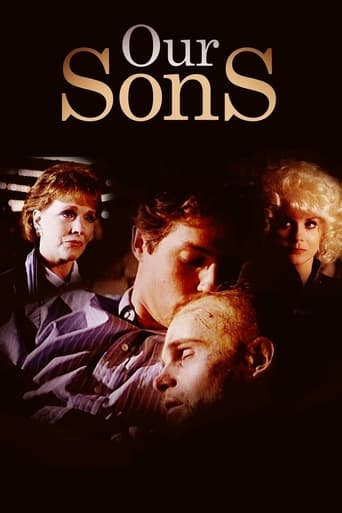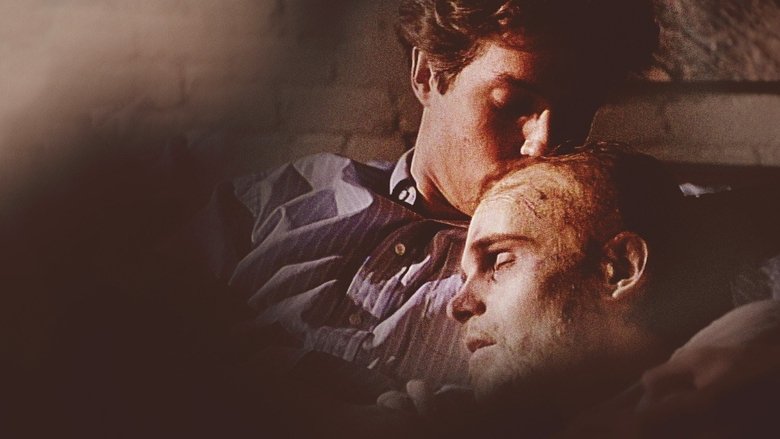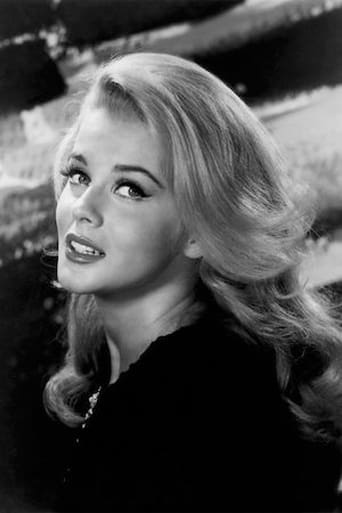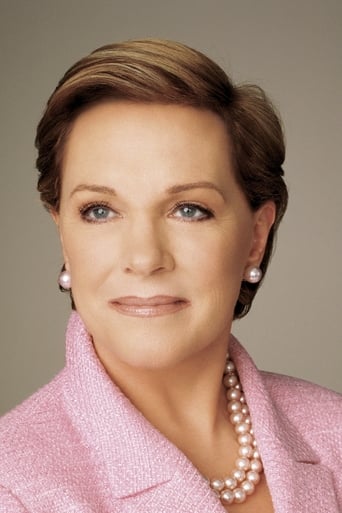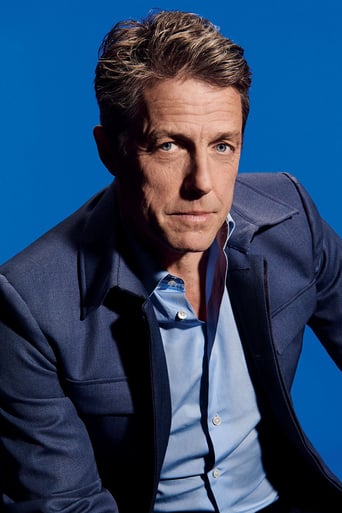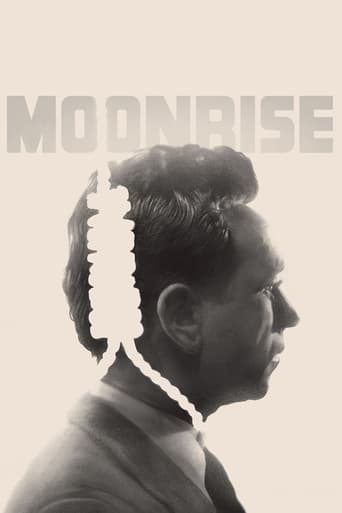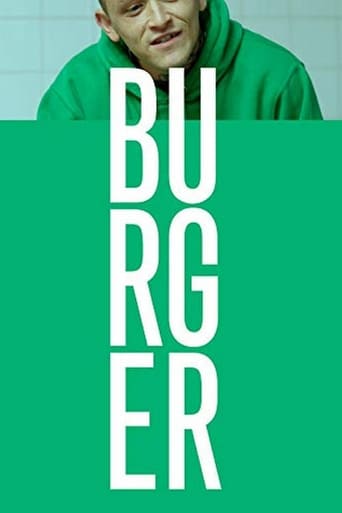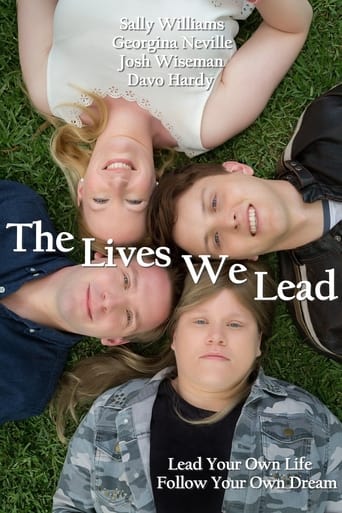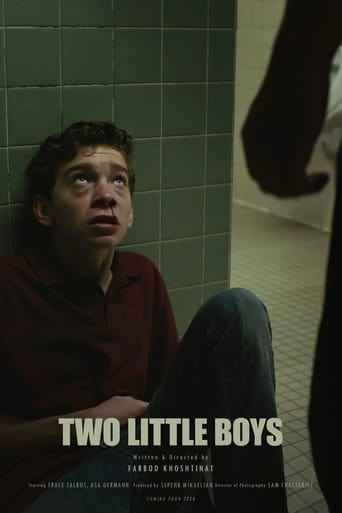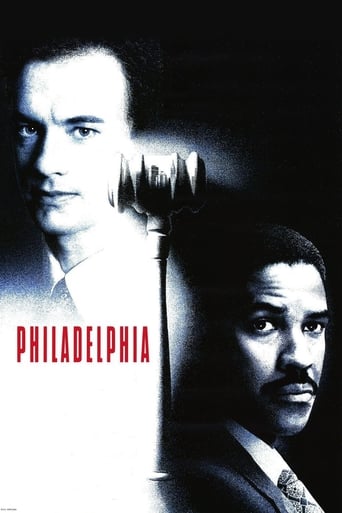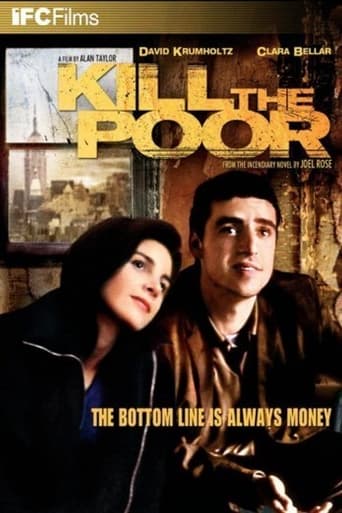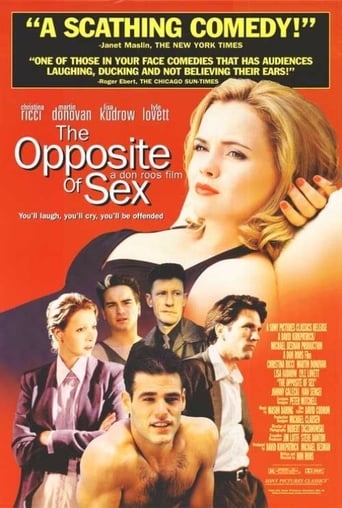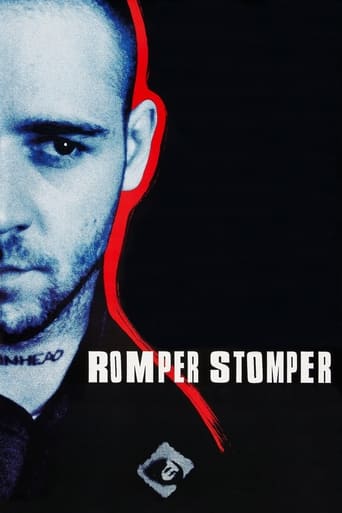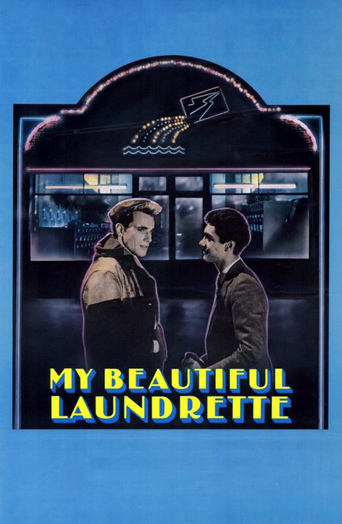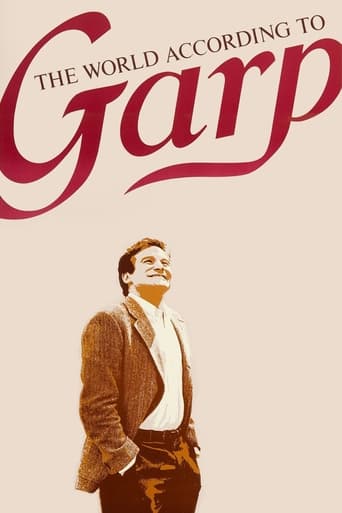Our Sons (1991)
When James admits to his mother that he is gay it strains her liberal attitude. A San Diego businesswoman, Audrey believes she is a modern, open-minded mother, but the news sends her reeling. However, the real shock comes when James asks her to travel to Arkansas and inform his lover's estranged mom, Luanne, that her son has AIDS. As Audrey and Luanne learn to put aside their prejudice toward each other, they soon discover how to share their thoughts, hopes and fears for their sons.
Watch Trailer
Cast


Similar titles
Reviews
Superb film about understanding. About empathy and forms of love, about social spaces and nooks of fear. Story of a special search and image of the other in your interior forum, place of gestures and words in an ambiguous universe of symbols and masks.A pledge for tolerance and small fights , about heavy price and the importance of values, about AIDS and the reactions not against illness or victim but against a subtle cowardly for who the ignorance, the personal life, the family are protective circles.Great value of film is the acting.Julie Andrews in a splendid role in which reveals the aspects of self sacrifice and force of a mother for who values, rules and dreams are more different after the confession of son.Ann- Margrette in the role of a victim of faith for who the life is cruel joke and, beyond education or hope, the presence of the other in personal space is terrible attack against.Hugh Grant as lover, son and ax of a universe in which self sacrifice is normal price to be yourself.Zeljko Ivanek in a touching role, with subtle shadows of interpretation of victims in many films.And the locations, words and details for constructing a drama not about love, hope, fight or social values, AIDS and death but for understanding of other like part of yourself understanding
I'm going to give the movie "2 thumbs up". The movie depicts a young man dying of AIDS and fears his mother knowing because she evicted him years prior because of him being gay. An all too familiar story in the gay community. However, the best part of the movie is watching both parents come to term with their sons sexuality. Audrey Grant (played by Julie Andrews) thought she didn't need any help in dealing with her son's sexuality until she met LouAnn Barnes (played convincingly by Ann-Margaret) and was forced to face her disappointment of not having grandchildren. The best lines however we delivered by Ann-Margaret and one can't help but laugh at her sarcasm and wit. In perspective, in spite of the subject matter, I found it to be a "feel good" movie and one that will be kept among my favorites.
ONe moment in this film I have never seen in any attempt to deal with gay rejection or homophobia on the part of two mothers, Ann-Margaret and Julie Andrews, whose sons are lovers and Margaret's son is now dying of AIDS. Ann is finally brought around and goes to be reunited with her dying son. At one moment in the film, she is in the kitchen with Andrews and Hugh Grant, who is Andrews son, and she is chittering away happily about being reunited again with her kid. She states casually how she hopes to take him back to Arkansas with her when everything settles down. Grant shoots Andrews a look of startlement, then blurts out, "absolutely not! He is too ill to travel!"Surprised, Ann-Margaret says, "oh no, I didn't mean before, . . . . I meant, . . . . I meant after, . . . " meaning after he had died, she would take his body back to Arkansas. She then dismissed the idea, seeing it had upset someone. This has never been depicted before or since that one who could dislike a child who is dying of AIDS could take responsibility of them after they have departed. A real slap in the face to those who think homophobia should always be condemned.
No matter what a man might have done to bring himself to an AIDS-ridden state, at the very least, he's entitled to two things: a fond farewell among his loved ones, and a proper burial. Few could have played out these sentiments more simply and rivetingly than in "Our Sons." Even in the bright San Diego sunlight, there is a pall of melancholy that hangs over everything in this movie--a ghost of yearning for tenderness and tolerance. It's an elegy that plunges through sharp differences of opinions, and, unlike most great homages, finishes with a sweet, somber sigh. I cannot remember when I've been moved so strongly by a TV movie. Julie Andrews stars as a businesswoman whose homosexual son, exhausted by the ordeal, reveals that his lover is dying AIDS. They have drifted apart, because although it had never been expressed, she is deeply disappointed with the situation, and harbors a faint hope that he might change. Under the mistaken notion that the best thing for his lover is to reunite him with his own mother, he asks her to travel to Arkansas to make a personal appeal. The problem is what separates this Mother and Son is not a tacit agreement to quietly disagree, but out-and-out rejection and gut-wrenching revulsion. The war breaks out between the two mothers as they wrestle with their strong feelings about their sons.Julie Andrews has never been known for playing mothers. Her clipped diction and stilted manner made her a more fitting nanny or governess, I think, than a living, breathing, nurturing bearer of children. It's these qualities that make her right to play Audrey Grant who has distanced herself from her son, because she doesn't want to admit that she hates what has happened. Andrews has never looked more radiant than she does here. It's as if the blood has finally started coursing through her veins. She looks recognizably human, and she has never seemed smarter than she does here.Ann-Margret doesn't seem any fitter to play a mother than Andrews, but she has always been known for her ferocity. Witness her going at John Forsythe in "Kitten With A Whip" or her eyes flash at a cockfight in "The Cincinnati Kid," and you'll know what I mean. But the abuses the women she played could heap upon the men in their lives, her Luanne Barnes can't quite get away with with another woman. She and Andrews go at it tooth-and-nail, and what comes of it are their most powerful performances ever.As Luanne's son Donnie, Zeljko Ivanek is the humiliation every parent fears, the skeleton most fathers and mothers want to stay in the closet, the jack-in-the-box they'd just as soon lost its spring. Donnie knows how his mother feels about him, and he wrestles with the prospect of a painful reunion as bravely as a dying man can. Writer William Hanley has blessed him with a love of movie dialogue and a take-things-as-they-come buoyancy. Ivanek knows what to do with a part this good. He flies with it, and he never comes down. With him playing Donnie, you can understand how he could attract someone who looks like Hugh Grant (who plays Audrey's son James as if he had a terminal case of lockjaw) and who could make a mother like Luanne Barnes see what a waste her rage and rejection was.John Erman, who also directed another good AIDS picture "An Early Frost," is an intelligent director; he knows when he has something good in front of him and when to get out of the way. The moral of the story may be a bit simplistic for some people's taste: that if we don't love our children, who will? But I think this movie stands alone on the subject of AIDS; it's the most powerful movie about it I've ever seen.

